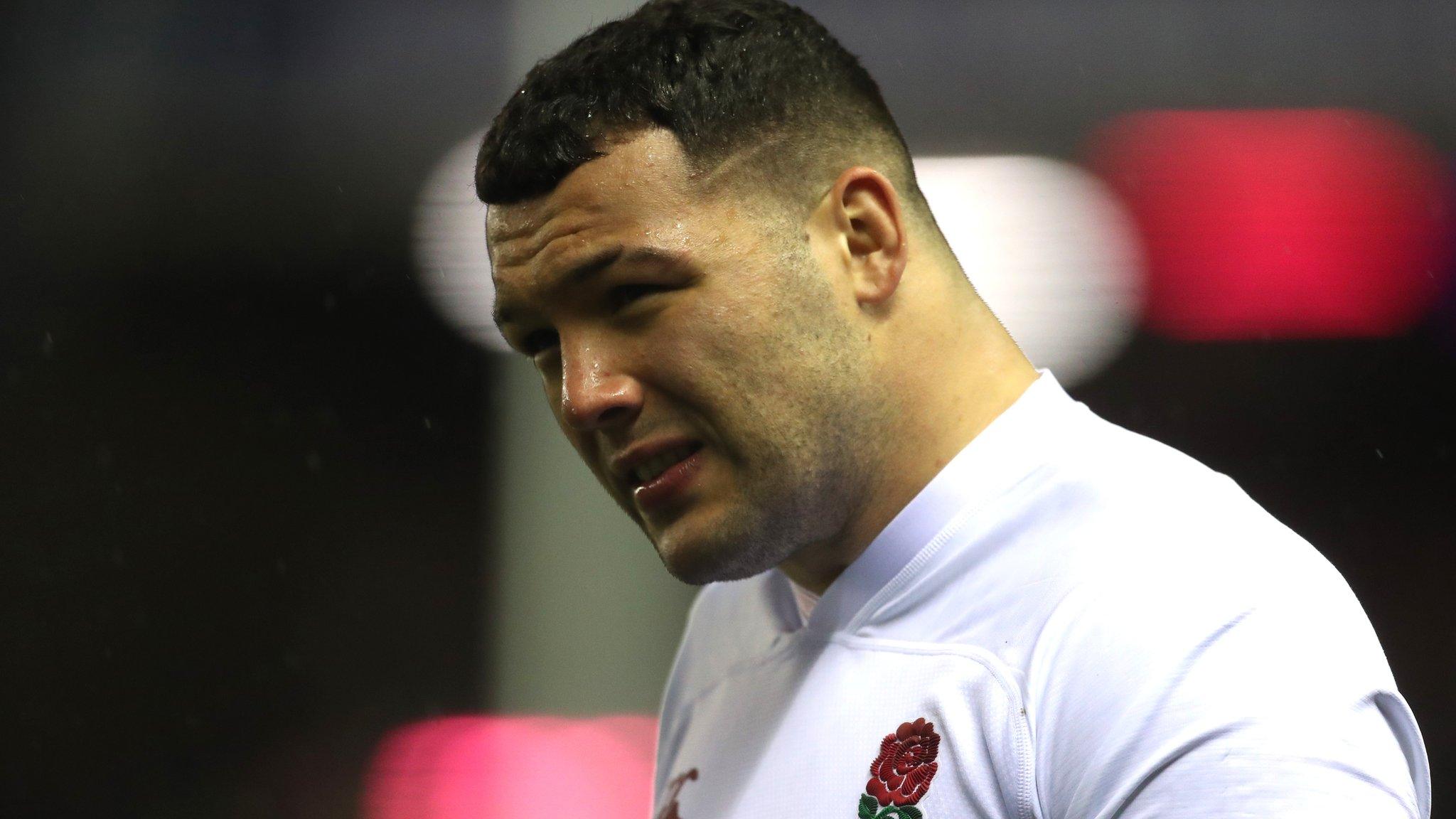Edward Colston: Bristol schools consider name change
- Published
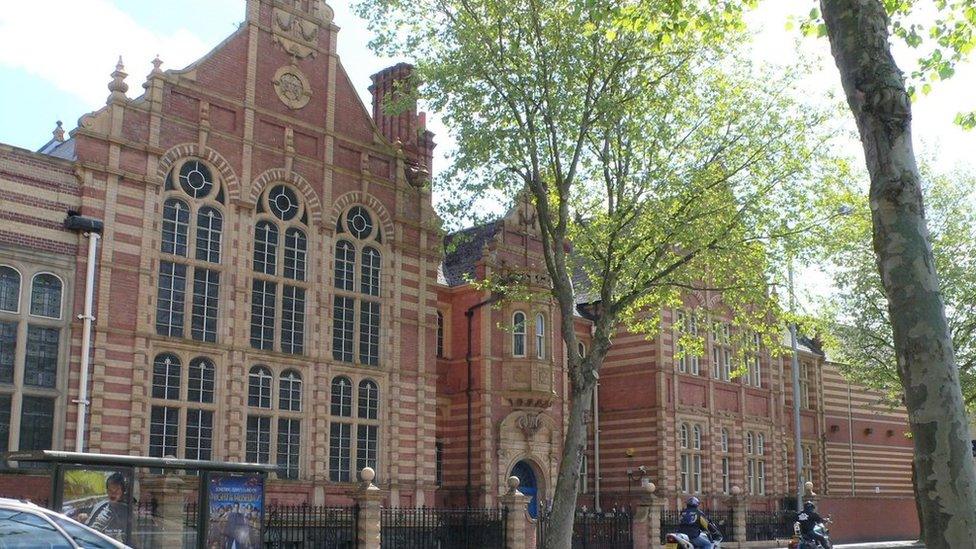
Colston's Girls' School said it took "immediate action" to remove the statue from its reception area
A school which is named after Edward Colston has removed a statue of him and is considering changing its name.
Colston's Girls' School took it down after a different statue of the 17th Century slave trader was thrown into Bristol's harbour during an anti-racism protest on Sunday.
The separate Colston's School, which was founded by the merchant, said it was also "looking at" a name change.
Both schools were set up using funds from the slave trader.
The girls' school was opened in 1891, 170 years after Colston's death, and was funded through a financial endowment from the slave trader.
The school's website states it is directly descended from Colston's Hospital, which opened in 1710 and was paid for by the merchant and which later became the separate Colston's School.
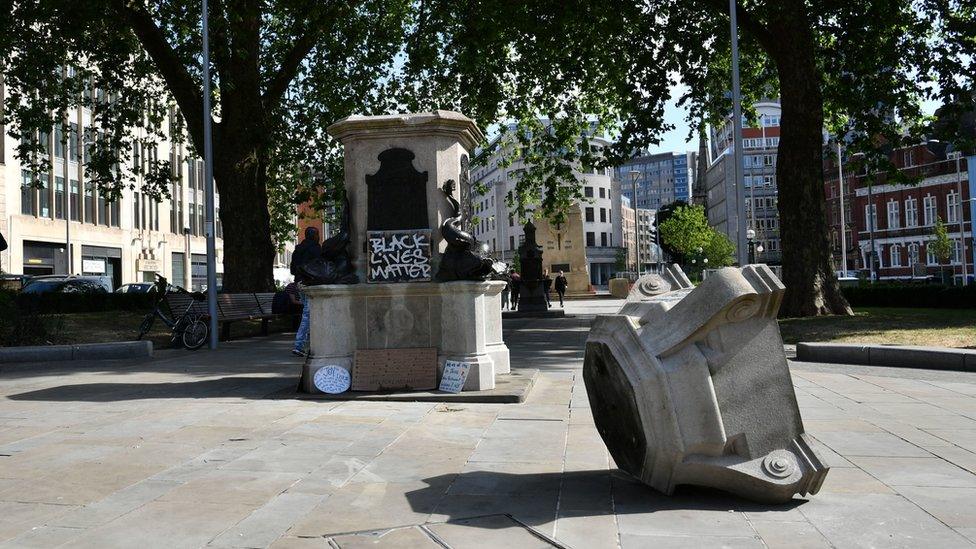
A statue of Edward Colston was torn down on Sunday, leaving an empty plinth
The 3ft (90cm) high statue of Colston had stood on a 5ft (1.5m) plinth at the girls' school for decades, the Bristol Post reported., external
A spokeswoman for the school was unable to provide any information about what had since happened to it since its removal.
"We recognise that Edward Colston is a divisive figure in Bristol and that we have a role to play in the passionate debate about the use of his name across the city," she said.
"This is an ongoing discussion that we are very much part of, with one immediate action being the removal of the statue of Colston from the reception area."
The headmaster of Colston's School, Jeremy McCullough, said there was "no doubt" the funds used by Colston to establish the school came "at least in part from the abhorrent and brutal trade in human lives".
"The name of our school, therefore, does not always sit comfortably with the very inclusive and diverse nature of our school community and is something that we have reviewed regularly," he said.
"It is not a change that could or should be taken lightly, or indeed made overnight, but it is certainly something that we are looking at again. "
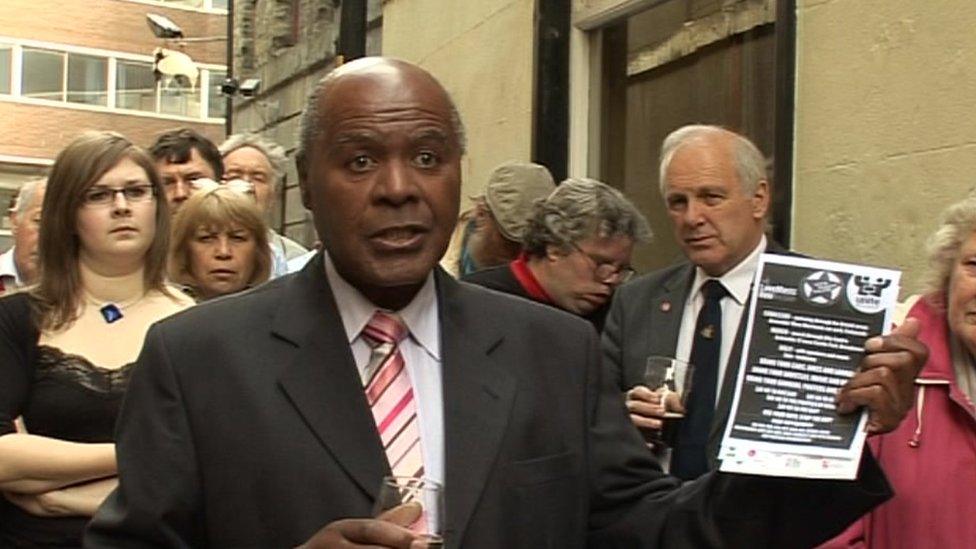
Dr Paul Stephenson organised the Bristol Bus Boycott of the 1960s
The city's Colston Hall music venue also said it aimed to announce a new name in the autumn.
The venue, which is currently closed for refurbishment, announced in 2017 that its name would change.
A spokesman said as a "demonstration of its commitment", the existing "external signage" would now be removed.
Meanwhile a petition to replace the Colston statue that was torn down with one honouring civil rights campaigner Dr Paul Stephenson has gained more than 30,000 signatures.
Dr Stephenson organised the Bristol Bus Boycott of the 1960s, which saw campaigners overturn a ban on ethnic minorities working on the city's buses and which influenced the creation of the Race Relations Act.
- Published9 June 2020

- Published8 June 2020
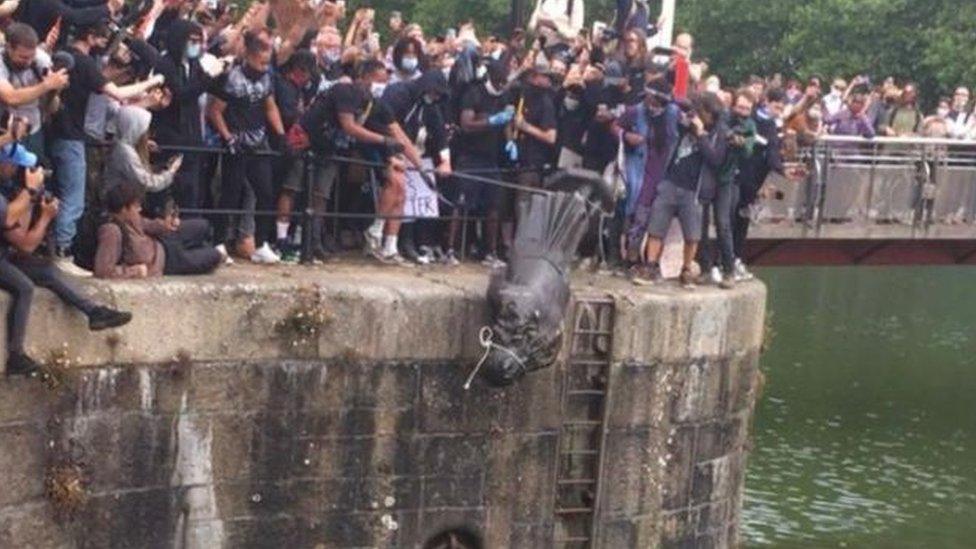
- Published8 June 2020
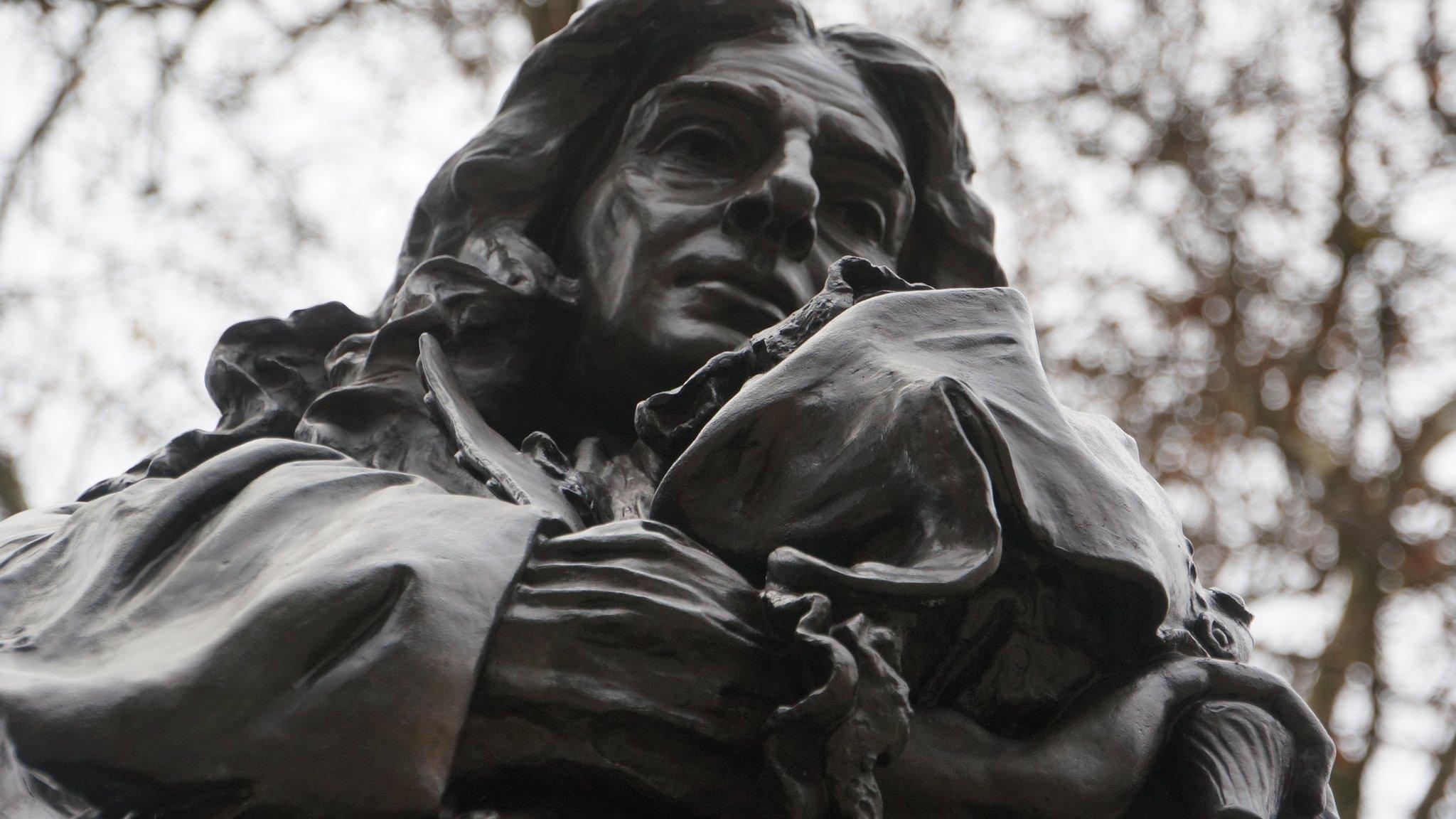
- Published8 June 2020
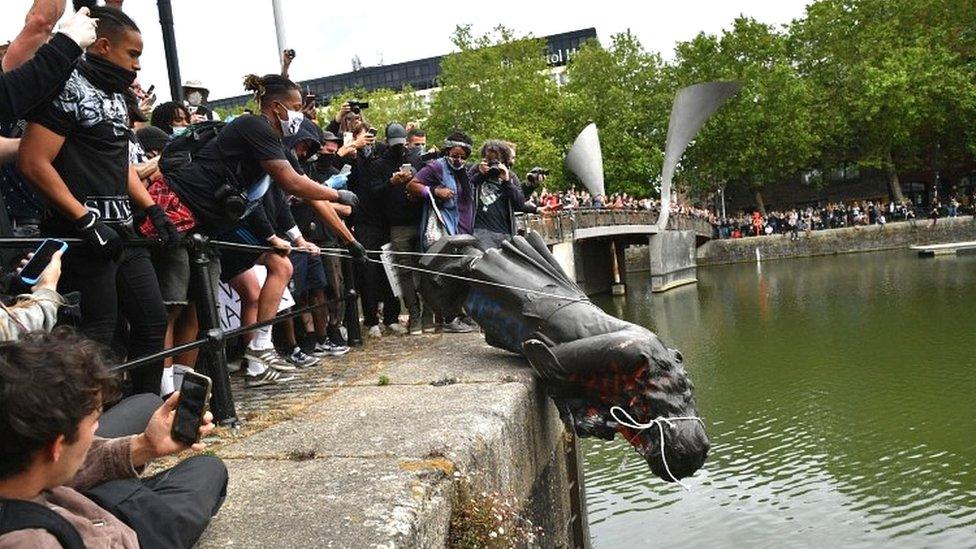
- Published8 June 2020
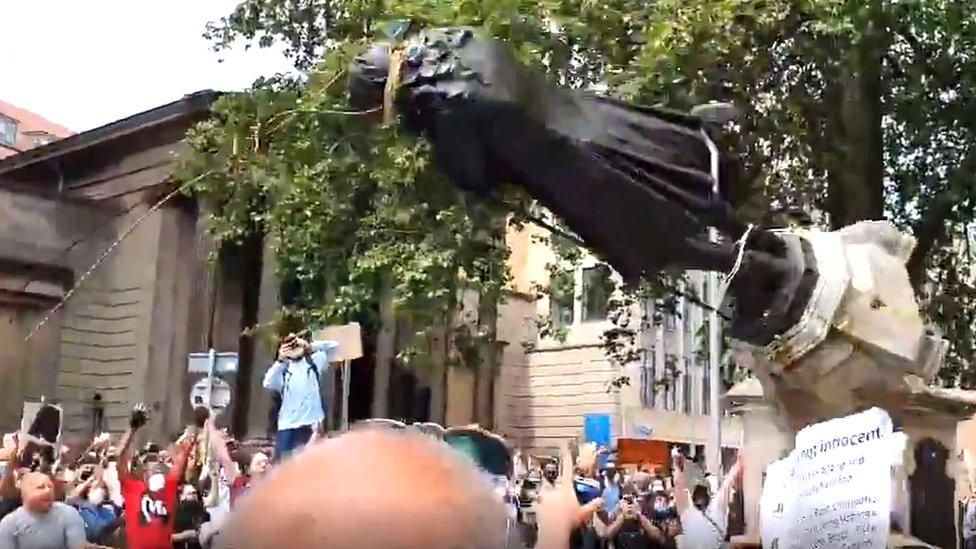
- Published8 June 2020
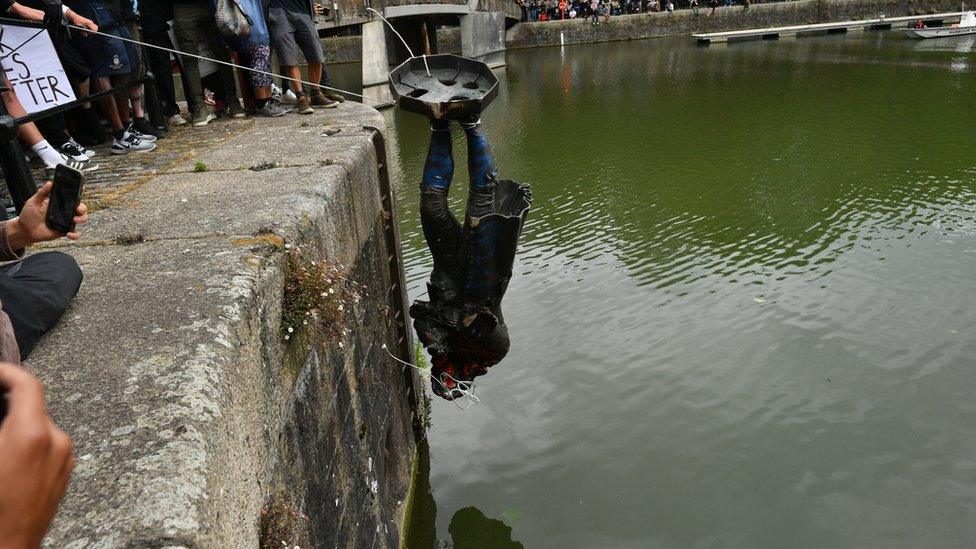
- Published8 June 2020
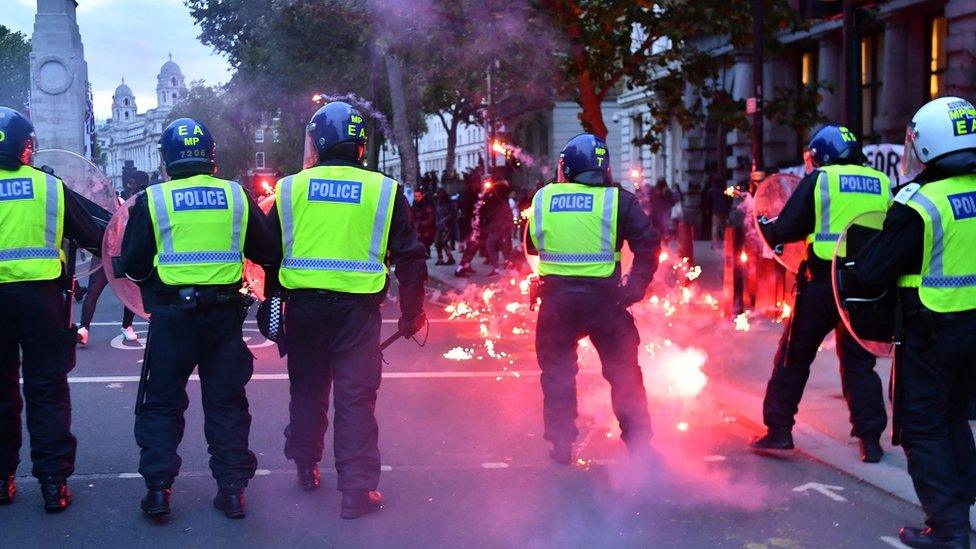
- Attribution
- Published9 June 2020
